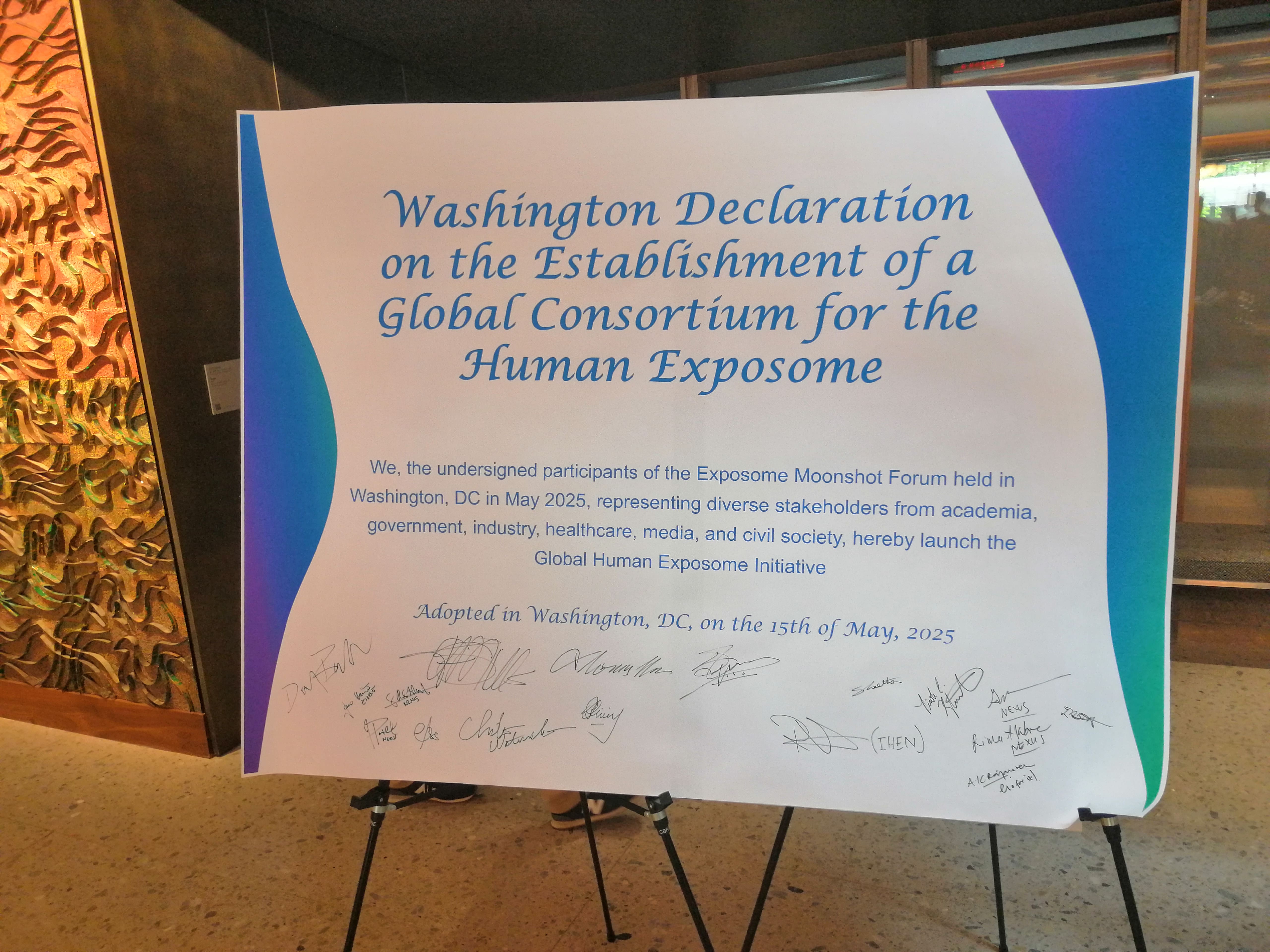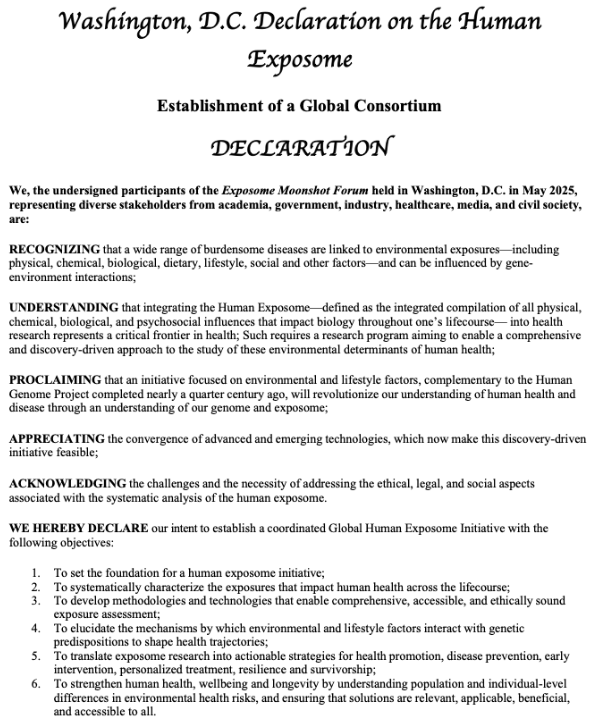
Conferences
May 22, 2025
The Global Human Exposome Initiative
Understanding the Exposome: The Future of Public Health Innovation 🌍
The concept of the exposome is a groundbreaking approach that encompasses the totality of environmental exposures from conception to death. This comprehensive perspective has the potential to revolutionize public health innovation by shifting focus from a purely genetic-based understanding to one that considers the vast array of environmental influences we encounter throughout our lives. Unlike traditional methods that often prioritize genetic factors, the exposome accounts for the myriad of external factors that impact our health. By doing so, it provides a more holistic understanding of the intricate interplay between our environment and our biology. This approach is particularly significant in the context of non-communicable diseases, which are responsible for over 70% of global deaths each year. Understanding the exposome is crucial for unraveling the complex causes of these diseases. The Washington D.C. Declaration has been instrumental in propelling exposome science forward, transforming it into actionable public health strategies. This declaration underscores the importance of integrating environmental exposures with genetic information and lifestyle factors to foster a comprehensive approach to health. The exposome thus represents a pivotal shift in how we understand and address health challenges on a global scale.
The Role of Advanced Technology and Global Collaborations in Exposome Research
Technological advancements are at the heart of exposome research, enabling the comprehensive mapping of environmental exposures. Techniques such as AI and non-targeted mass spectrometry are pivotal in tracking thousands of chemicals and environmental factors. These methods provide detailed insights into how these exposures influence health, offering a level of detail previously unattainable. Biomarkers and sophisticated survey instruments play a critical role in measuring and analyzing these exposures. They allow researchers to quantify the impact of environmental factors with unprecedented precision. Furthermore, global initiatives and collaborations, like the Exposome Moonshot Forum, are driving this research forward, facilitating the sharing of data and expertise across borders. The Washington D.C. Declaration serves as a catalyst for the development of data-driven health systems, promoting proactive public health measures. It emphasizes the necessity of integrating diverse technological and collaborative efforts to harness the full potential of exposome science.Implications of Exposome Science for Chronic Disease Prevention
The insights gained from exposome research are invaluable for chronic disease prevention. By understanding the interactions between genes and the environment, we can achieve more accurate assessments of disease risk. For instance, exposure to tobacco smoke is a well-documented environmental factor linked to respiratory and heart diseases. Mapping the exposome allows for the identification of such exposures and the development of targeted intervention strategies. These strategies have the potential to significantly reduce healthcare costs and improve health outcomes by preventing the onset of chronic diseases. The integration of diverse data types, such as environmental, genetic, and lifestyle information, further enhances the predictive power of exposome research. This opens new avenues for proof-of-concept studies and the development of innovative prevention strategies. The future directions for exposome science are promising, with the potential to transform our approach to health and disease prevention. By embracing this comprehensive perspective, we can address the root causes of health issues and promote a healthier society.A New Era in Public Health: Harnessing the Power of the Exposome
The transformative potential of exposome research in public health cannot be overstated. Continued investment and collaboration are essential to fully realize its benefits. Policymakers play a crucial role in supporting exposome initiatives and integrating findings into health strategies. By doing so, they can foster a data-driven approach to health that is capable of addressing the complex challenges posed by environmental exposures. The scientific community is encouraged to further explore the exposome's role in disease prevention and health improvement. This focus area promises to be a key driver of future public health innovations and strategies. By harnessing the power of the exposome, we can pave the way for a healthier, more informed society. In conclusion, the exposome represents a paradigm shift in how we approach public health. By considering the full range of environmental exposures, we can develop more effective strategies for disease prevention and health promotion. The commitment to understanding and leveraging the exposome is a crucial step towards a healthier future for all.ABF's Contribution to the Research Field of Exposomics
ABF is dedicated to contribute in this field by providing our expertise in quantitative and non-targeted MS analysis for exposure assessment in human samples. We have a proven track record of successful partnering with government agencies, academic & industry partners. We look forward to the progress in the field within the Global Human Exposome Initiative launched in Washington DC at the Exposome Moonshot Forum
